Jewish Community Relations Council (JCRC)
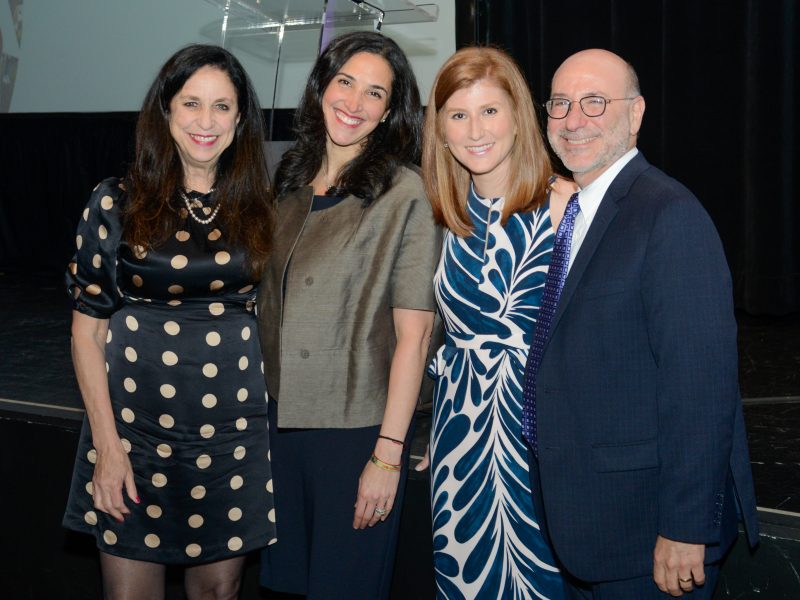
The Oldest Hatred in a New World: 2019 JCRC Annual Meeting
Walter Spiegel, Immediate Past President
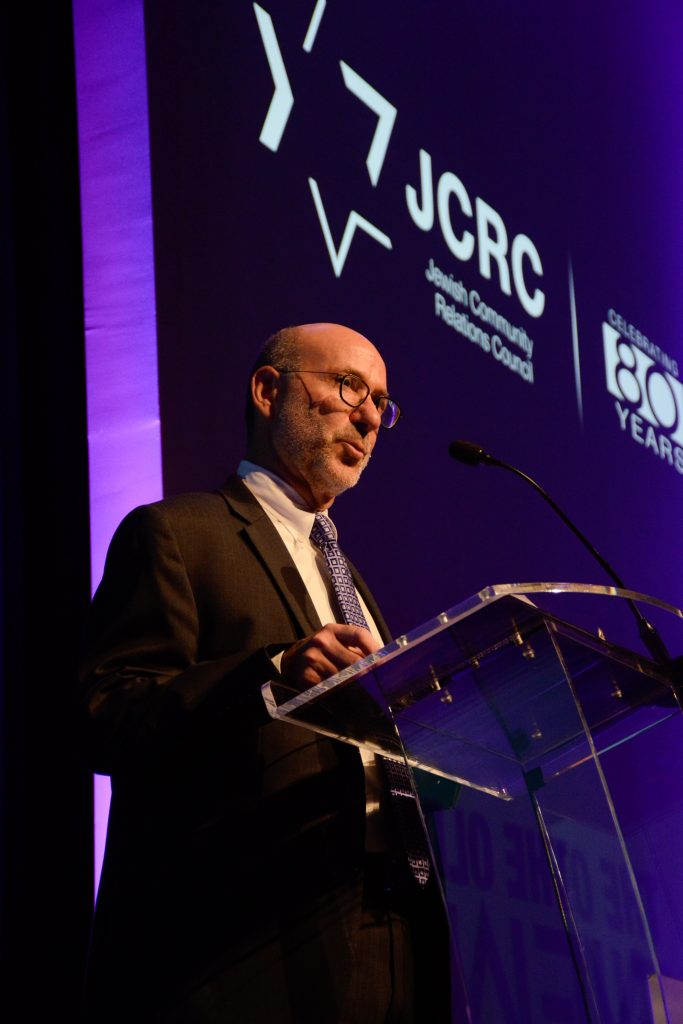 Two years ago, when I became JCRC president, I talked about my deep personal connection to the mission of this organization, a connection that was undoubtedly passed on to me by parents who personally experienced the darkest days in Jewish history as children in Nuremberg, Germany.
Two years ago, when I became JCRC president, I talked about my deep personal connection to the mission of this organization, a connection that was undoubtedly passed on to me by parents who personally experienced the darkest days in Jewish history as children in Nuremberg, Germany.
But yet, as a child of the 1960s and 70s who did not personally experience antisemitism, those stories of Kristallnacht and of my grandfather being beaten bloody by Nazi Brownshirts seemed like part of my family history and of our collective Jewish history. Anti-Semitism, at least in this country, seemed to be a page from the past.
Sadly, we have seen over the course of my two-year term, that antisemitism is alive and well, not just in other parts of the world but also here at home.
When I became President, I could not have imagined that during my term we would see Nazis marching across the hallowed grounds designed by Thomas Jefferson.
I certainly could not have imagined that those marching in Charlottesville would be praised as “fine people” by the President of the United States.
And of course, I could not have imagined that during my term, we would experience something that had never before occurred in the history of this country – Jews murdered while praying in synagogue. Remarkably, we have now lived through this experience twice in the past year.
But the antisemitism that we are experiencing today is not confined to the dark fringes of the far right. Some of the most hurtful examples of Antisemitism come from members of the progressive community who are viewed by many in the Jewish community as natural allies in the fight against hatred and bigotry.
We read tweets from members of Congress implying that Jews are not loyal citizens of this country, a slanderous charge that I could not help but think about last month as I walked through the American cemetery at Omaha Beach and saw with pride the many Jewish stars interspersed among the crosses.
We see Jews banned from walking in Pride parades for daring to hold rainbow banners displaying those same Jewish stars. And we see Jewish students on campus after campus harassed for expressing their support for a Jewish homeland in Israel.
These are indeed challenging times.
In these challenging times, the work of this organization becomes more important than ever. And as you will hear and see tonight, JCRC is fully committed to this fight.
During the past year, we responded to dozens of local incidents of antisemitism–assisting students, families, and school systems dealing with an uptick in antisemitic bullying.
We provided parents with tools to discuss difficult issues with their children through our “Safe Spaces” program after Pittsburgh.
We met with our State and Federal representatives to advocate for increased state and federal funding for security at houses of worship and nonprofits.
We increased our involvement with the Cincinnati Regional Coalition Against hate—leading anti-bias training for teachers at area public schools.

And most significantly, in April, JCRC convened a remarkable full day regional summit on antisemitism and Hate, called Driving out Darkness, at Union Terminal. More than 40 organizations partnered with us to develop and host this first-of-its kind program, and dozens of local and national experts joined us to lend their expertise as panelists and moderators.
At this time, I would like to recognize those here tonight who worked with us to make this program a huge success. Would all of our Summit partners, panelists, and moderators please stand now so we can thank you.
The Summit was attended by more than 300 participants, more than half of whom were not Jewish. National organizations are hoping to replicate this, and advocates in other cities are using it as a guide to plan their own programs. Some of our participants explained what made the day so powerful. [VIDEO]
Of course, despite the efforts of this and other partner organizations, antisemitism shows no signs of abating. But among the advantages that we have today that my parents’ generation lacked is our ability to respond and take action through community-based organizations such as JCRC and the widespread goodwill of so many allies to speak up and not let hate against any community go unchecked. And so today, as we see stark reminders of those dangerous times, it is imperative that we double down on our efforts. We need to call out antisemitism, from whatever source, party, or organization. We need to educate our Jewish community, our partners, and the community at large of the danger that we in the Jewish community understand all too well – that hatred and bigotry may start by targeting the Jews but it never stops there. We need to dig deep and allocate community resources and dollars to protect the safety of our community and to fund organizations on the local and national level that are on the front line of this fight. And we need to reach across our differences – whether religious, ethnic, racial, or economic – and develop those relationships that will bring together like-minded people to work with us to pursue our mission of developing a just society for all people.
Jackie Congedo, JCRC Director
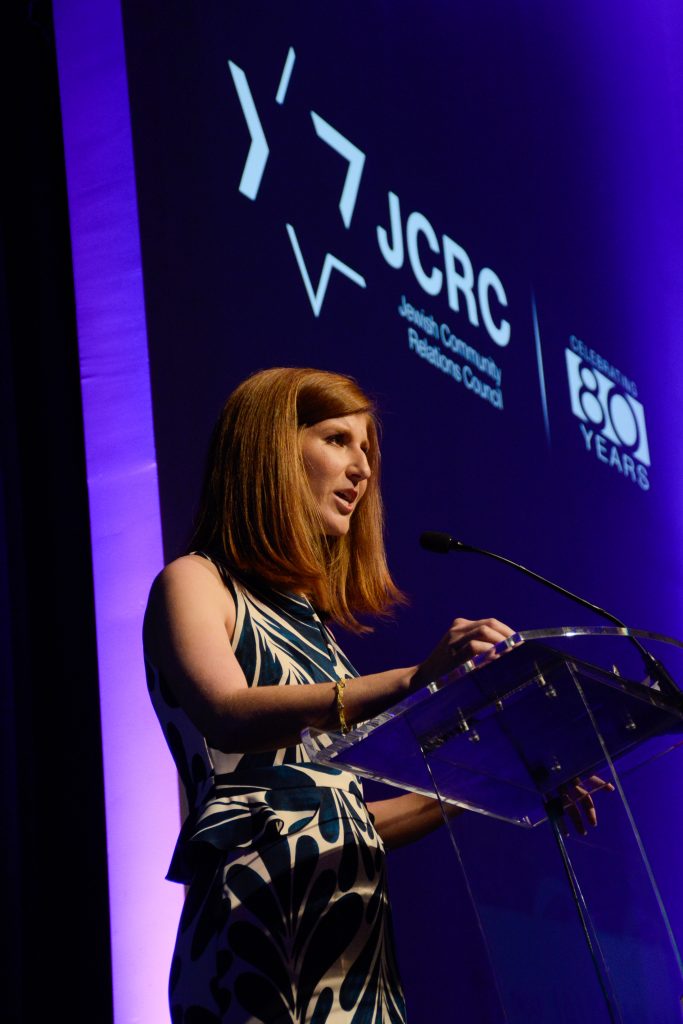 Tonight, we are gathered to talk about antisemitism—which is often called the oldest hatred, because it is as old as the Jewish people. In some ways, while tonight we celebrate 80 years of JCRC work fighting this hatred, I find myself wondering if this is a cause for celebration at all. Here we are, 80 years later, still at it, as threats grow and change around us.
Tonight, we are gathered to talk about antisemitism—which is often called the oldest hatred, because it is as old as the Jewish people. In some ways, while tonight we celebrate 80 years of JCRC work fighting this hatred, I find myself wondering if this is a cause for celebration at all. Here we are, 80 years later, still at it, as threats grow and change around us.
80 years later, and antisemitic incidents have doubled in just the last three years.
80 years later, and antisemitic violence has invaded our American synagogues in an unprecedented way.
80 years later, and Jewish students ask us for help when they’re bullied by peers who wish their relatives had died in the Holocaust.
80 years later, and the KKK is out and proud in Dayton’s courthouse square, meanwhile Israel’s flag is destroyed by counter-protesters of that same KKK rally.
What do we have to show for 80 years of this work? What is there to celebrate?
But tonight, in fact, there is much to celebrate.
Tonight, we celebrate our refusal to let this age old hatred define how we respond to it.
For thousands of years, all over the word, from the Inquisition in Spain to the Pograms in Russia, to the Holocaust in Europe, to the killing of Jews on American soil in their houses of prayer in just the last year, Jewish communities have been victimized because of persistent and mutating antisemitism.
But we celebrate tonight because over and over again, when it would have been completely rational to turn inward, we have instead reached out—with an even stronger commitment to welcoming the stranger and with renewed vigor in fighting injustice wherever it lies. This is the story of Jewish survival against all odds, across continents and through generations, for thousands of years. And this is the mission and work of the JCRC.
So—when it came to driving out darkness with light, this year brought much to celebrate.
In the face of unprecedented attacks on our Jewish community and rising antisemitism, we reached out to other communities- to learn and stand together against all forms of bigotry. In October after the shootings in Pittsburgh, as more than a thousand of you stood with us in this room. In April, at our Summit on Antisemtisim and Hate, as together we learned tools and skills necessary to combat the rise in bigotry of all types. And most recently, at vigils at local mosques and churches, after violence devastated Christian and Muslim communities.
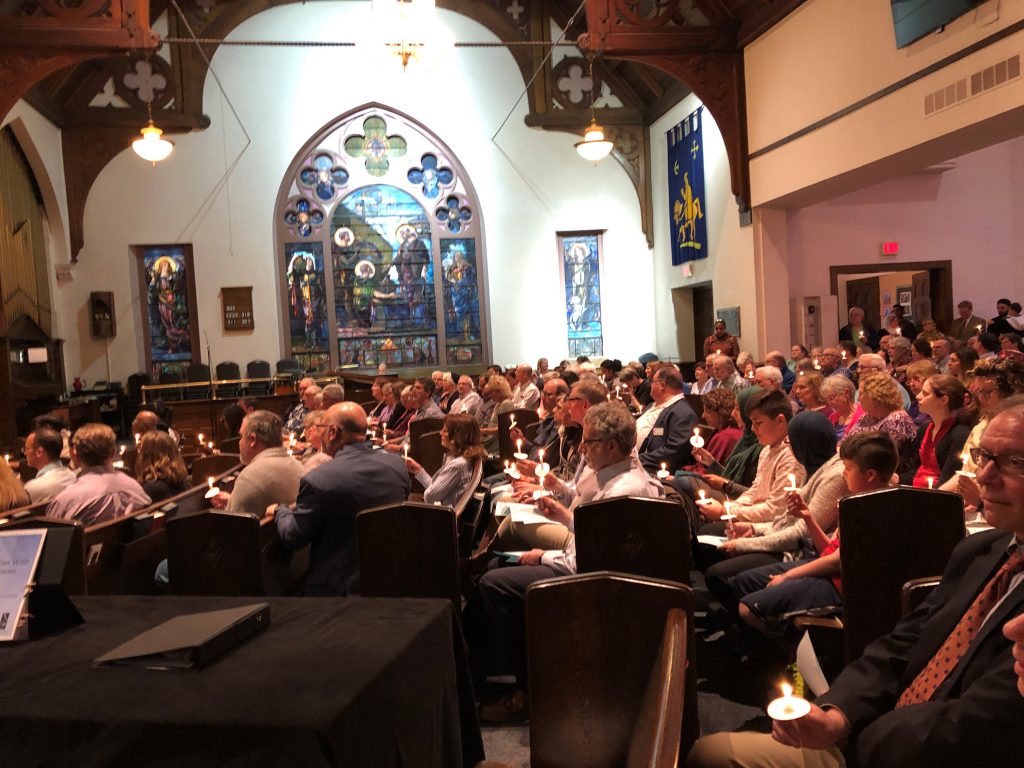
As the campaign to delegitimize Israel and alienate Jewish students raged across U.S. college campuses, we coupled our advocacy with opportunities to surface multiple narratives and we expanded our community’s capacity for difficult discussion about Israel.
In October, we hosted the Parents Circle Families Forum—made up of Israelis and Palestinians who’ve lost loved ones in the conflict. Here in this room, Mazen Faraj who lost his father in the Second Intifada, and Rami Elhanan, who lost his daughter in a Jerusalem suicide bombing, talked together about their unlikely but unbreakable friendship— modeling reconciliation as a pathway for peace.
And in May, with the help of a national organization called “Resetting the Table,” and in partnership with the Mayerson JCC, the Federation’s Israel Center, and the cohort for Strategic Israel Engagement Development, we hosted training for 20 Cincinnati Jewish leaders—giving them tools to facilitate tough conversations about Israel.
Here’s what they had to say about the two day skill-building workshop. [VIDEO]
No doubt, our work creating space for nuanced conversation about Israel and our efforts combating antisemitism reached new heights this year. But we didn’t stop there.
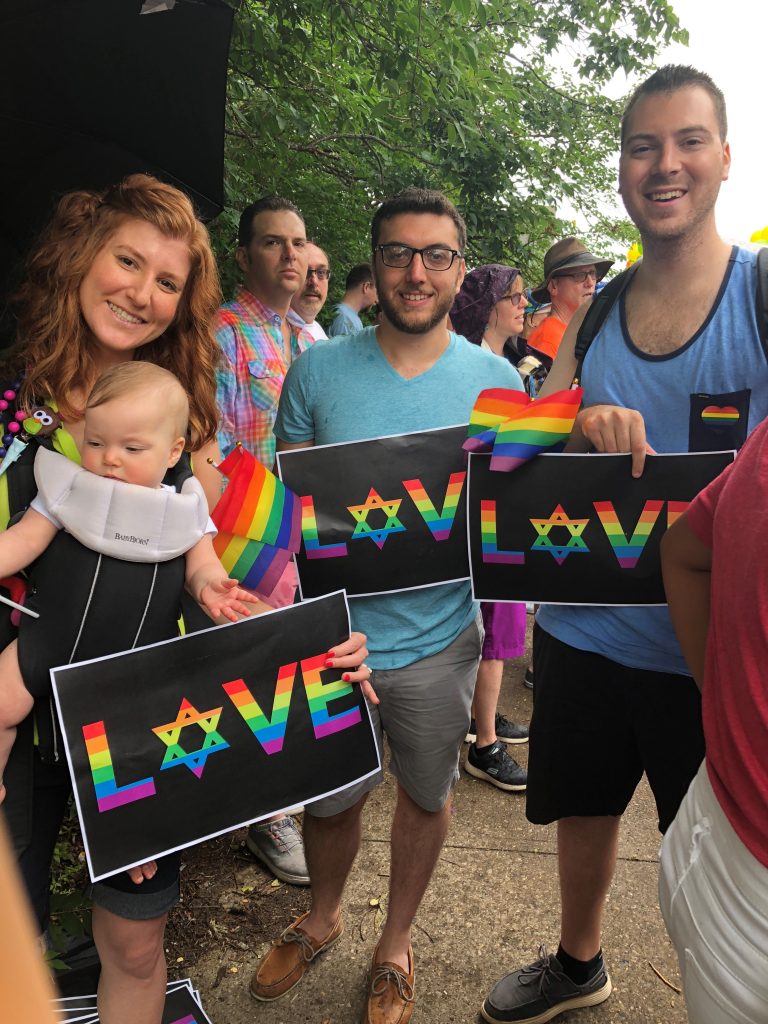
When news broke of families being separated at the US-Mexico Border, we worked with congregations to host a donation drive, and with Federation to set up a supplemental fundraising campaign. We advocated for immigration reform, and we connected our community with opportunities to volunteer in assisting new immigrants.
As gun violence in this country set horrific new precedents– claiming the lives of more US school-age children than on-duty US police or global military–we used our relationships with elected officials to push for federal and state common sense gun safety reform.
And When Ohio Issue 1 created a pathway to lessen the glaring racial disparities in our prisons, we hosted an educational forum and organized to collect ballot signatures.
We know the more people engaged in our work, the bigger the difference we can make. That’s the idea behind JCRC’s Civic Engagement Arm, L’Shem Cincinnati, which has facilitated hundreds of new relationships and connections for greater impact this year. [VIDEO]
Undoubtedly, this past year brought unprecedented challenges, and as we look forward we have to be prepared for the fact that those challenges may get tougher in the year to come.
But tonight, I am hopeful. Because, while antisemitism may be as old as the Jewish community itself, it has never defined us. To the contrary, we have responded to hate by opening our arms even wider, in service to our neighbors and in pursuit of repairing the world around us. As long as that remains our response, hate will never triumph.
Dr. Ronna Greff Schneider, JCRC President
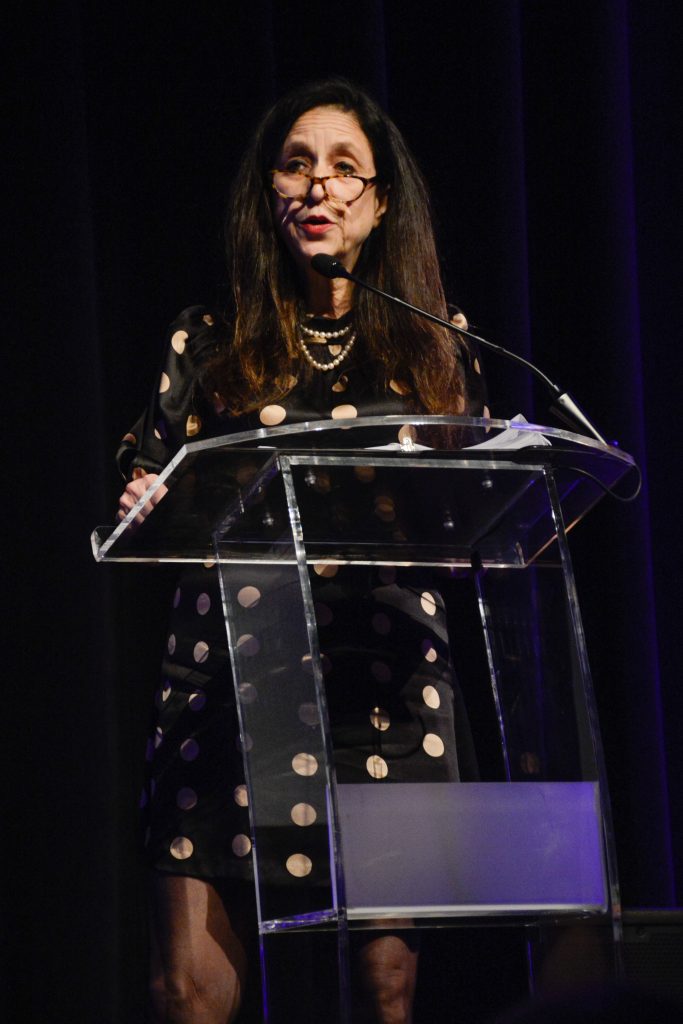 I come to this position with the perspective of almost four decades as a Professor of Law at the University of Cincinnati College of Law, teaching and writing about American constitutional law, with a focus on the First Amendment.
I come to this position with the perspective of almost four decades as a Professor of Law at the University of Cincinnati College of Law, teaching and writing about American constitutional law, with a focus on the First Amendment.
I have spent much of this time analyzing the importance and scope of religious liberty in our pluralistic democratic society and pondering the dilemmas surrounding hate speech and any possible future limitations on it.
Through my work, I have gained insights that have given me a passion for the work the JCRC does, especially in an era of the rapid rise of antisemitism in America.
The JCRC mission is to protect Jewish security, recognizing that Jewish security depends on a just society for all.
The JCRC is the collective voice of our Jewish community in building our relationships with other communities across Cincinnati, a task that is critical to accomplishing this mission.
Successfully building and strengthening those relationships forms the core of our work. There are several reasons why this is and should be so:
- In light of our mission, building relationships across communities by engaging on issues of mutual concern, like immigration and criminal justice reform, is important not only because it enhances the strength and quality of our entire community, but also because helping to build a more just society is morally the right thing to do from a Jewish philosophical and ethical perspective. This means being invested in these issues with both our words and our actions.
- Building relationships across communities leads to mutual trust and understanding, essential for working together in order to solve common problems as well as to eradicate common evils. Finding such commonality is an important element in protecting the security of our own Jewish community.
We are all aware of the alarming rise in antisemitism and bigotry of all types.
Antisemitism, like Islamophobia, racism and other forms of vile discrimination, is a manifestation of the same disease of hate and intolerance that infects all of our communities and requires a unified effort to defeat it.
Antisemitism is not just a Jewish problem. It is a universal problem.
Perhaps the most extraordinary and important statistic that came out of our Summit on Antisemitism and Hate was that 60% of the attendees were not Jewish.
This is a testament to the significant number of Cincinnati leaders from all communities who care about standing up against Anti-Semitism and other forms of hate, who value cooperation, and who are willing to join us in seeking mutual understanding and solutions.
We must continue to build together on these principles.
The diversity in the room tonight speaks to the broad commitment in our communities to mutual support.
One of the primary tools of the purveyors of antisemitism and bigotry is hate speech.
While the First Amendment protects hate speech that is short of incitement from government censorship, it also protects our right to protest such evil – and of course we must do exactly that – together.
First Amendment jurisprudence says that the light of good speech, of just speech, exposes the darkness of hate speech. We stand tallest and shout loudest when we do it together, united.
We will silence the chants of the hate mongers with our words of unity. We will not tolerate the intolerant or those who inspire the violence of bigots against others.
While it is extraordinarily dangerous, hate is ultimately cowardly.
Venomous hate-filled speech may be constitutionally protected, but it will be no match for the strength and courage of our united condemnation.
In short, building relationships across communities enables us to build this unified response.
Working together does not require that we agree on all issues – it requires only that we care enough to try to cooperate to make the world a better place.
That is good for the security of the Jewish community, and it is necessary in order to build a more just society for all people – it is a fulfillment of our mission.
I would also like to mention several other activities that the JCRC will be engaged in during the coming year in addition to continuing our efforts at building and strengthening relationships with other communities:
First, we will work to develop new strategies to meet the growing needs of Jewish students experiencing rising anti-Semitism in schools. This means providing students with tools to advocate for themselves, and working with parents and educators to combat antisemitism in this context.
Second, we will call out efforts to delegitimize and demonize Israel for what they are–a modern manifestation of antisemitism.
But we will also help people understand that there is a difference between criticizing Israeli policies and delegitimizing the Jewish State—and that not all criticism of Israel is antisemitic.
We will continue to convene difficult but fair and nuanced conversations about Israel that provide space for multiple narratives and shades of grey.
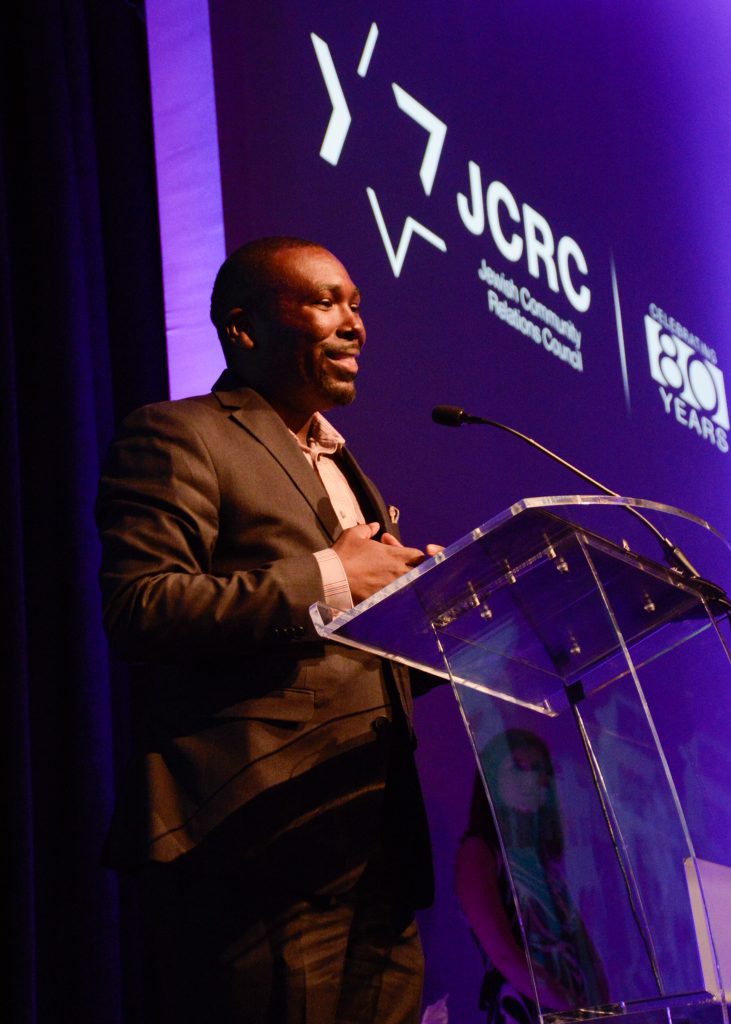
Third, as the nonpartisan public affairs arm of the Jewish Federation, it is also our obligation to help educate about important and often challenging public policy topics, and to model a civil approach in discussing these topics.
To that end we will continue hosting lectures from thought leaders, both local and national, to further community conversations, as we will do this fall when we will have Ambassador Dennis Ross here.
We are also partnering with our Jewish Federation’s Israel Center and the Mayerson JCC in order to bring Yossi Klein Halevi of the Shalom Hartman Institute here to discuss his book just published this past year – Letters to My Palestinian Neighbor. This is a book that encourages diverse conversations, and so we invite all of you to join the dialogue at any number of Public Library book club discussions this summer.
Fourth – Many have asked about a follow-up to our Summit on Antisemitism and Hate. All I can give you on this one right now is a little sneak preview. We have a very new, innovative initiative in the works that will take the transformative conversation sparked at the Summit to the next level, so stay tuned.
And Finally Fifth – the great unknown. There are always unforeseen new issues that will arise during the course of the next year that we will address with thoughtfulness, moral courage and Jewish values.
I close with a note of optimism and enthusiasm.
I am very fortunate to have a very strong board with whom I will have the pleasure of working. Its members are creative and critical thinkers that have an impressive breadth of knowledge with a wide variety of backgrounds and diversity of views.
Their skills combined with the amazing talents of our professional staff – Jackie and Justin – make me confident that we will have the ability and resources to address the critical issues facing our community with careful analysis, intelligence, and vision
I hope you will want to be involved in these endeavors and not hesitate to bring issues, questions, innovative ideas and creative thinking to help in these collective efforts.
I am also heartened by the partnership our Jewish community is fortunate to have with so many other communities in Cincinnati.
The work we have ahead of us requires our collective effort, and I am grateful to see that you are here tonight because you share our belief in the power of togetherness.
One Final Note
We did so much over the past year, we couldn’t fit it all into our remarks on Tuesday. So we wanted to share this video about an Election Forum we held in October–a live, televised debate with candidates for US Representative for Ohio’s 1st and 2nd congressional districts.
JCRC Annual Meeting Videos
Driving Out Darkness: 2019 Cincinnati Regional Summit on Antisemitism and Hate
Resetting the Table
L’Shem Cincinnati
Thanks for caring about our community and what we do.
Stay connected: sign up for our newsletter here.

